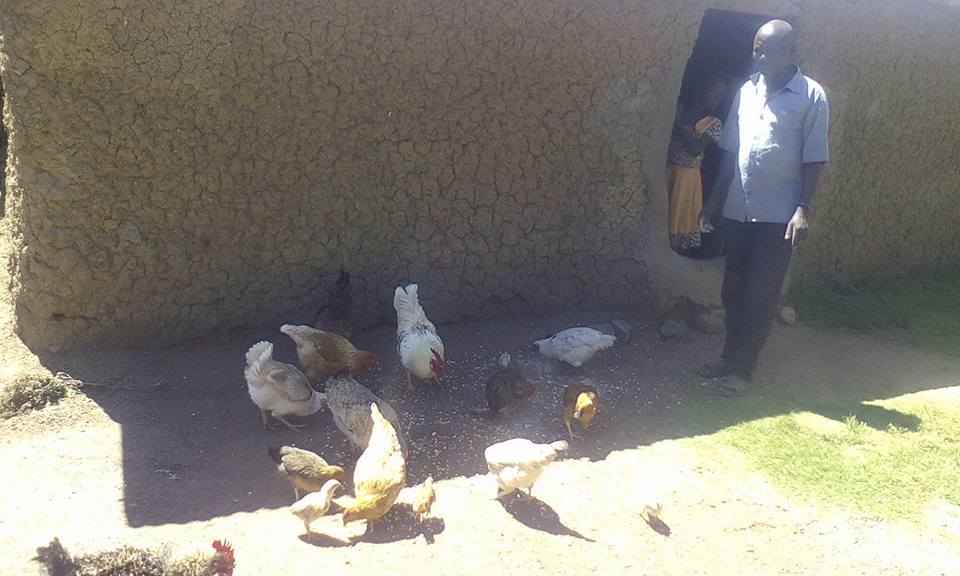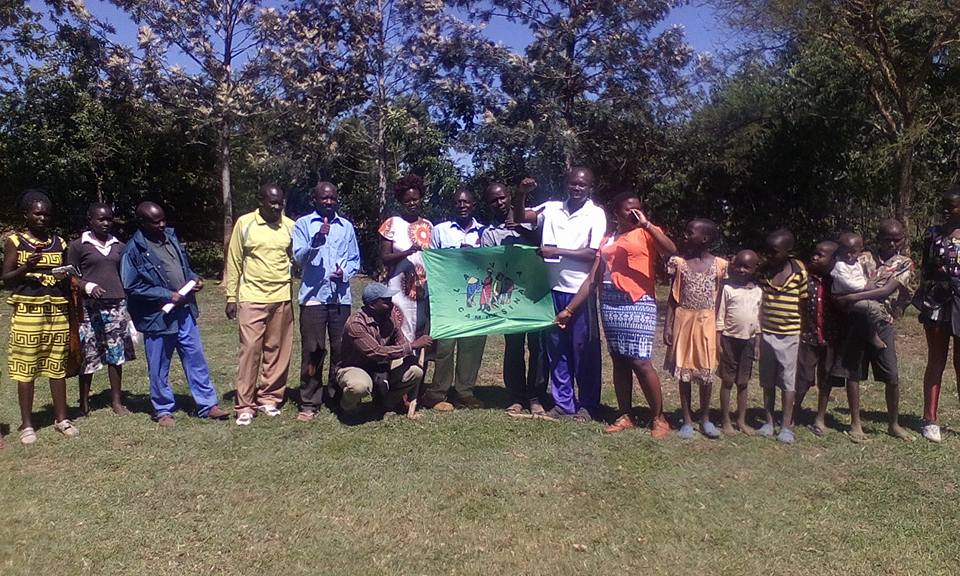On 19 April 2019, two days after the First Peasants Agroecology Summer School at Mariwa Village in Migori County, members of Kenyan Peasants League (KPL) Mulo and Mariwa Clusters visited the Kurutyange Cluster as part of KPL Farmer to Farmer Exchange visits to enhance horizontal learning among the farmers. Kurutyange Cluster being a new Cluster benefited from the experience of Mulo and Mariwa Clusters.
Six homesteads were visited during the exchange after which a joint meeting was held at Marwa Chacha’s homestead. One of the homesteads visited was mzee Ibrahim’s home that has integrated use of medicinal trees and herbs to cure local diseases including livestock diseases.
The main food crops grown in Kurutyange Cluster include Sorghum, millet, maize, beans and sweet potatoes. Members also rear chicken, goats, cows and sheep.
Effects of climate change
The delegates had an opportunity to witness how climate change is affecting peasant agriculture due to weather shift. Many farmers relying on the local farming calendar had ploughed their land but had not planted as they were still waiting for the rains. The rains have delayed in this season and it is worrying the local farmers. The farmers proposed the development of integrated rain Water Harvesting in the area including adopting drought resistant crops like millet and sorghum.
Developing local markets

“People don’t buy eggs instead they get it from their chicken. Trade can also be done through farmers” This was in reference to a discussion on creating alternative markets and self-sufficiency of farmers in Kurutyange Cluster. According to Rhobi Susan a member of KPL Women Collective and also from Kurutyange Cluster, the farmers have reduced buying products like eggs as each homestead has to rear chicken. Those who don’t have enough buy from fellow cluster members in a bid to create an alternative market.
Other land uses in Kurutyange cluster
Kurutyange is located in a hilly area that has strong winds especially during dry seasons and according to Marwa the local Convener of KPL, each homestead in Kurutyange cluster has grown trees to break the wind. Euphorbia candelabrum known locally as “Bondo” and Ficus capensis known as “Bongu” in Luo dialect is some of the trees grown by the farmers in Kurutyange. The trees are grown during the long rain season through propagating cuttings and seedlings.
Mzee Chacha demonstrated to the delegates how to propagate Bondo which has a variety of uses including use as firewood, roofing, making beehives and also a bee forage among others. Mzee Chacha shared some cuttings with the delegates. Bongu is a large deciduous tree growing to up to twenty meters and has several uses including making furniture, beehives, utensils, boat building, edible fruits and also a bee forage.
Future challenges to peasant farming: Food Crops Regulation
Recently the Kenyan government proposed Food Crops Regulations 2019 that prohibits the use of animal manure and rearing of animals and growing of crops on the same piece of land. Such regulations will destroy the peasant farming system which relies on mixed farming practices. It would be an affront against the farmers in Kurutyange Cluster who rear chicken, goats, sheep, cattle and also grow crops.
Furthermore, the regulations also prohibit farming along the roads and KPL wonders how the rural farmers living along the roads would survive.
KPL believes that the regulations are aimed at promoting the interests of agribusiness. Some provisions of the regulation require farmers to use chemical fertilizers from specific companies expose the county governments to manipulations by the private companies. KPL has petitioned the Nairobi County Assembly, the Senate and the National Assembly on the regulations.
By Michal Awuor, KPL Youth Collective and David Otieno

